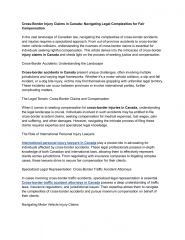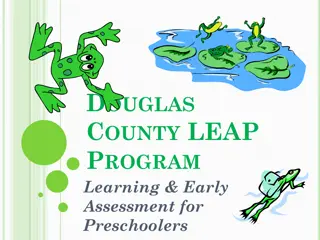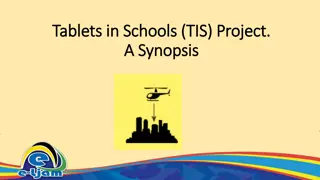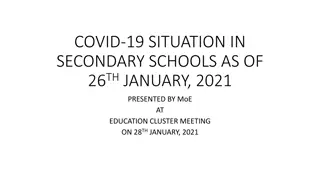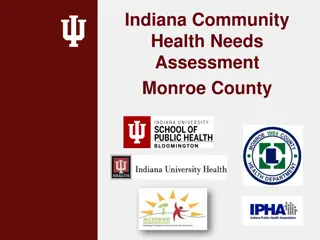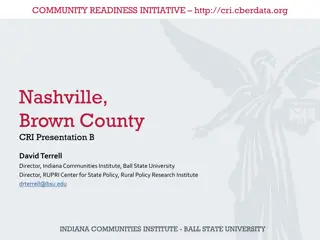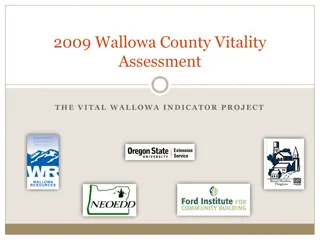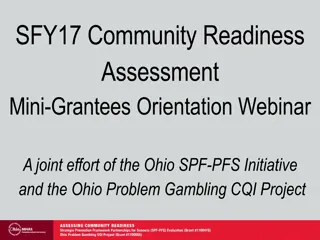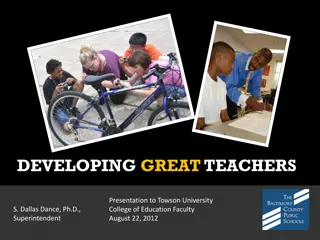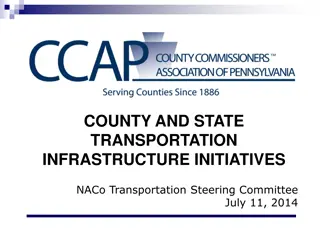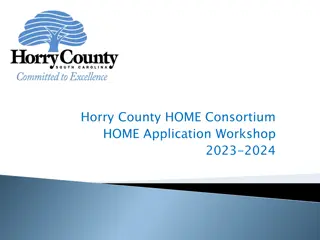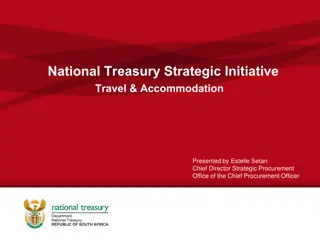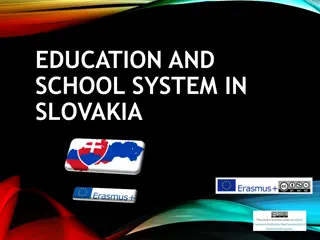Benefits of 1:1 Technology Initiative in Cross County Community Schools
This content provides insights into the reasons for implementing a 1:1 technology initiative in Cross County Community Schools. It discusses the benefits of such a program, including improved critical thinking skills, access to unlimited learning tools, enhanced organization skills, and more. Additionally, it highlights the impact on instruction delivery, student learning methods, benefits of students having their own laptops, the role of technology in special education, and the associated costs for families. Overall, the information emphasizes the positive effects of technology integration in education.
Download Presentation

Please find below an Image/Link to download the presentation.
The content on the website is provided AS IS for your information and personal use only. It may not be sold, licensed, or shared on other websites without obtaining consent from the author.If you encounter any issues during the download, it is possible that the publisher has removed the file from their server.
You are allowed to download the files provided on this website for personal or commercial use, subject to the condition that they are used lawfully. All files are the property of their respective owners.
The content on the website is provided AS IS for your information and personal use only. It may not be sold, licensed, or shared on other websites without obtaining consent from the author.
E N D
Presentation Transcript
FAQ 1:1 Cross County Community Schools
Q 1. What are the main reasons for going 1:1? This model best supports critical thinking skills, problem solving and creativity to prepare students for today s workforce. Allows access to all teachers and students to take advantage of the unlimited tools to engage learning. Research shows 1:1 initiatives assist students in organization skills and on-task behaviors, which leads to improved learning.
Q 2. What is the main benefit? Immediate access for students and teachers. *Impact on instruction delivery and positive changes for students in how they learn.
Q 3. Are there benefits to students having their own laptop? All documents and logins will be in one spot, allowing students to be more productive and efficient. (Similar to the way college students and employees do their work) Students can work on projects anytime, anywhere! Allow students more opportunities to work on college bound courses.
Q 4. Does the computer take the place of a textbook? Electronic textbooks are beginning to become reality, but at this time, not all textbooks are digital. The district will strongly consider the use of digital textbooks as they become more available.
Q 5. How does this program affect our special education students? Technology offers many programs and tools that will support our curriculum and their needs. Examples: Free online resources to enhance learning such as virtual manipulatives, science labs, customized quizzes, vocabulary building software podcasts and numerous language learning resources.
Q 6. What will be the cost for the family or student? School will do a 3 or 4 year lease on computers. Schools that are 1:1 schools charge the parents and students an annual fee for insurance to cover the cost of the laptop if the laptop is stolen or accidently broken. Cross County will follow that format as well. The district is still researching what type of insurance will be used and at what cost to the family. Many of the schools who have 1:1 have annual insurance fees ranging from $50.00 75.00 a year.
Q 7. How will students who dont have Internet Access complete assignments? During non-school hours, students currently have access to WiFi in the school parking lot, the Stromsburg Library, and the Square Cup. The goal with expanding to a 1:1 laptop initiative would be to continue to build partnerships with businesses in the Benedict and Stromsburg communities to provide additional WiFi access.
Q 8. Would students be required to participate in the 1:1 laptop program? Yes. If the school district moves forward with a laptop initiative it would only work effectively if each student has a laptop. If a family does not want their child to participate, the child would still need to check out a laptop at school during the day and then check it in at the end of each school day.
Q 9. If a student already has a personal laptop (PC or Macintosh), can he/she use it rather than use one of the school s leased machines? No. All students must be on the school computers so we have consistent software, filters, and support.
Q 10. When and how will students get their laptops? The plan is for the board of education to vote on the laptop initiative at the May board meeting. If approved, there will be a deployment day scheduled where both the student and parents will be required to be in attendance. The school district is looking into deploying the laptops in January of 2013.
Q 11. How will they transport their laptops throughout the day (lunch, bathroom, gym)? Students will also be issued a new carrying case for the laptops.
Q 12. If you use a laptop all day long, the battery will die. How will that be managed? The Mac machines we are looking at have a battery that is rated for 10 hours. It would be the student's responsibility to make sure it is fully charged before coming to school.
Q 13. How will we handle the appropriate use of laptops? Although students will be able to take the laptops home, they are school property. Students and parents will sign a policy use agreement prior to obtaining laptops. If rules are not followed students will lose privileges of using a laptop. If damages occur that are not accidental, the student and parents are responsible for the cost to fix or replace.
Q 14. Where will students go for laptop support when there are issues? All computers will be under warranty. Our Tech Team will provide support for students, staff and parents.
Q 15. What is the plan for dealing with lost or stolen computers? The insurance plan that students and parents will partake in will cover theft, as long as an official police report is filed. Students will use a loaner while theft claims are being processed.
Q 16. How will you manage social networking( IM, Facebook, YouTube, Internet) and other distractions in the classroom? The school network has a filtering system designed to block improper use. Some 1:1 schools allow facebook access after school hours and some don t. Cross County is still researching if facebook or any other social networking system would be allowed to be accessed after school hours.
Q 17. What kind of support and training will be provided to families? Cross County would offer laptop orientation workshops and handouts that will introduce proper laptop use to students and parents. We will also have the school tech center available for additional support.
Q 18. What students will take part in the 1:1? We are considering 6-12 or 8-12.
Q 19. Is there any research to support the implementation of a 1:1 laptop learning program? Conclusions drawn from available research is that the 1:1 learning experience provides many positive outcomes for students, staff, and the community. Among the outcomes mentioned most are:
Improved writing skills and depth of students research. Increased student interest in learning and ownership of the learning process. Improvement in student and staff attendance. Reductions in student behavior problems. Increased parental interest in school activities. Improved student and staff morale. Reductions in lecture/presentation instruction and an increase in project based learning activities.


